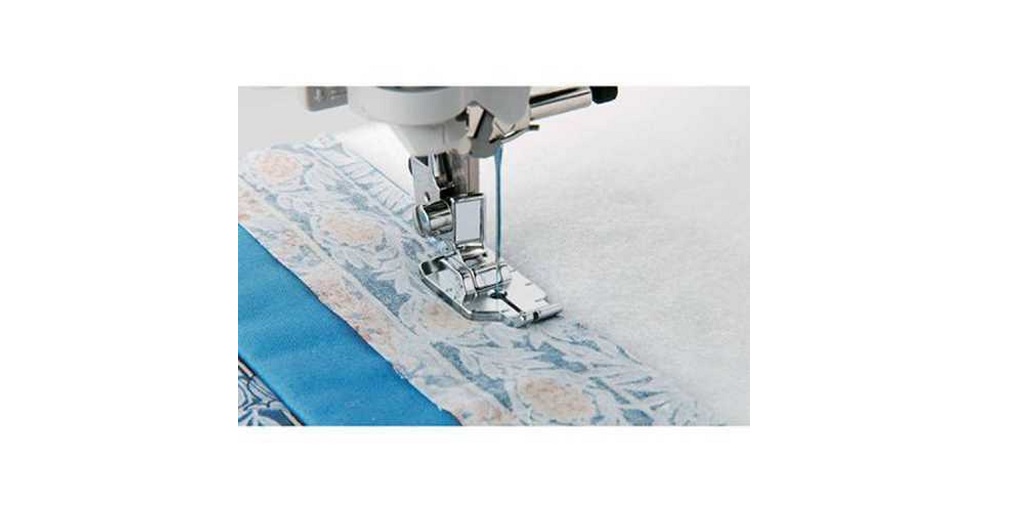Most people who are into sewing or embroidery have a list of equipment and materials they need to make sure they craft something beautiful and exceptional. However, they might not tell anyone who is a beginner in the hobby that some accessories are only optional, not essential.
And understanding the difference between essential sewing machine accessories and optional ones is crucial. While certain tools are absolute necessities for any sewing enthusiast, others are more about enhancing convenience and efficiency.
What You Truly Need
Sewing Machine Needles
A sewing machine is useless without the right needles. You’ll need to replace these frequently based on the fabric type you’re using. All projects all require specific needles to prevent skipped stitches and fabric damage. Always keep a variety of needles on hand and change them often to maintain optimal stitching quality.
Tape Measure
A flexible tape measure is a must for accurate measurements. Whether you’re measuring fabric, hems, or seam allowances, having a reliable tape measure ensures precision. When buying one, verify its accuracy by comparing it against another measuring tool.
Seam Ripper
Mistakes happen, and a seam ripper is your best friend when they do. While most sewing machines come with a basic seam ripper, investing in a high-quality one with an ergonomic grip and a sharp blade will make undoing stitches easier and quicker.
Pins and Pin Cushion
Pins are indispensable for securing fabric before stitching. Opt for pins with heat-resistant heads to avoid melting issues when ironing. Pin cushions are optional, but they’re a handy addition to keep your sewing area organized.
Bobbins
Every sewing machine requires bobbins, which come in metal or plastic, depending on your machine. Stick to the type recommended for your machine to avoid compatibility issues. While bobbin holders aren’t strictly necessary, they help keep your threads organized and prevent tangling.
Iron and Ironing Board
Pressing seams and fabric is vital for professional-looking results. A standard iron with a steam function and a basic ironing board are essential. Compact tabletop ironing boards are excellent for small spaces, while larger ones are better for extensive projects.
Fabric Scissors
A sharp, high-quality pair of fabric scissors is non-negotiable. They cut cleanly without fraying fabric and should only be used for fabric to prevent dulling. Brands like Gingher offer scissors that last decades with proper care.
Marking Tools
Marking pens or pencils are essential for transferring pattern lines or making temporary markings. Water-soluble markers and chalk are safe choices, while friction pens are convenient for most projects but may not be ideal for clothing, as cold temperatures can revive the markings.
Sewing Gauge
This small, inexpensive tool is invaluable for measuring hems and seam allowances. Its sliding marker ensures consistent measurements, making it one of the most frequently used tools in a sewing kit.
Surge Protector
If your sewing machine has any digital components, a surge protector is critical. It safeguards your machine from electrical damage, which can render it unusable. This accessory may save you from costly repairs or replacements.
Nice to Have, But Not Essential
The following are some accessories that can indeed help you in any project. But that does not mean you need them to complete or even create an exceptional project.
Fabric Clips
Fabric clips can secure layers of fabric without the risk of holes. But you can use pins if you don’t have them.
Rotary Cutter, Cutting Mat, and Ruler
These three tools work together to streamline fabric cutting. While not essential for beginners, these tools are game-changers for advanced sewing and quilting.
Pinking Shears
Pinking shears create a zigzag edge on fabric, reducing fraying. While not essential, they’re helpful for finishing raw edges without a serger.
Specialty Marking Tools
These items can simplify tasks like threading elastic or creating sharp fabric corners. These are convenient but not must-haves for beginners.
Snips and Tweezers
Snips are small scissors used for trimming threads close to the fabric, and tweezers help maneuver stubborn fabrics or remove lint from your machine.
Turning Tools
For projects like bags and garments, turning tools simplify flipping fabric right-side out. While you can manage without them, they save time and effort.
When building your sewing toolkit, prioritize essential sewing machine accessories that can serve as the backbone of any sewing project. Once you’re comfortable and ready to explore advanced techniques, you can expand your collection with other optional items.
For more information about Fabric Bundles and Multi Needle Embroidery Machine please visit:- Premier Stitching DBA Sew Vac City

